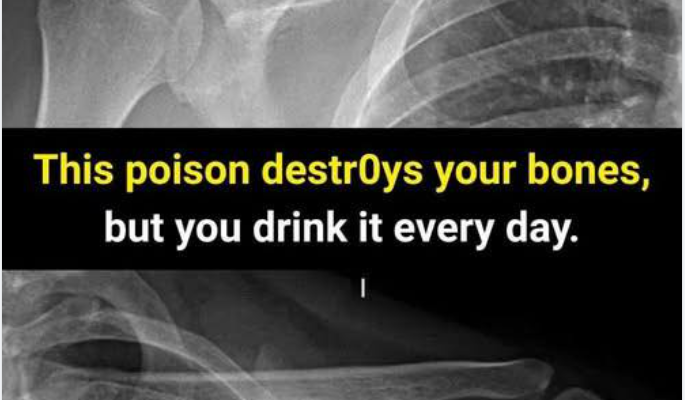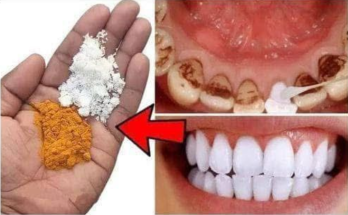The Hidden Cost of Convenience: How Bottled Iced Coffee May Harm Your Bone Health
In today’s fast-paced world, bottled iced coffee has quickly become a staple for many seeking a convenient caffeine fix. It’s tasty, portable, and provides a refreshing energy boost — the perfect pick-me-up during a busy day. But while this grab-and-go beverage seems harmless, it may carry unintended consequences for your long-term health — particularly when it comes to your bones.
Though moderate coffee consumption can offer some health benefits, such as improved mental alertness and even reduced risk of certain diseases, bottled iced coffee often strays far from the simplicity of a homemade brew. These ready-to-drink options frequently contain high levels of caffeine, added sugars, and artificial ingredients, all of which may silently contribute to the weakening of your bones over time. Here’s a closer look at why your daily bottle of iced coffee might be doing more harm than good to your skeletal system.
1. High Caffeine Content: A Hidden Risk for Calcium Loss
One of the primary concerns with bottled iced coffee is its caffeine content. Many popular brands contain significantly more caffeine than a standard 8-ounce cup of home-brewed coffee. While caffeine is well-known for its energizing effects, excessive intake can interfere with calcium absorption — a critical factor in maintaining strong bones.
When your body doesn’t get enough calcium from your diet, it compensates by pulling calcium from your bones to maintain vital functions like muscle contraction and nerve signaling. Over time, this process can lead to decreased bone density, making bones more fragile and increasing the risk of fractures and conditions like osteoporosis.
According to some studies, every 100 mg increase in caffeine intake may result in a measurable loss of bone mass, particularly in individuals who don’t get enough calcium through their diet. Unfortunately, many bottled iced coffees contain upwards of 200-300 mg of caffeine per serving — enough to raise concern when consumed regularly.
2. Excessive Sugar: A Sweet Threat to Bone Health
In addition to caffeine, bottled iced coffee is often loaded with added sugar. A single serving can contain anywhere from 30 to 40 grams of sugar — sometimes even more. That’s more than the American Heart Association’s recommended daily intake (25 grams for women and 36 grams for men) in just one drink.
High sugar intake is linked to a number of health problems, including obesity, diabetes, and heart disease. But what many don’t realize is that sugar can also negatively affect bone health in several ways.
First, sugar increases the amount of calcium excreted in urine, leading to mineral loss that would otherwise be used to strengthen bones. Second, excessive sugar consumption can cause chronic inflammation and disrupt the body’s hormonal balance, including hormones responsible for bone remodeling and repair, such as insulin and estrogen. Over time, this creates an environment where bone degradation outpaces regeneration.
Moreover, sugary beverages often replace more nutrient-dense choices like milk, fortified plant-based drinks, or plain water — all of which are important for maintaining optimal bone health.
3. Nutritional Imbalance and Lifestyle Habits
Most bottled iced coffee drinks provide a quick energy boost but little else in terms of nutritional value. They rarely contain meaningful amounts of bone-supportive nutrients such as calcium, vitamin D, magnesium, or vitamin K. Relying too heavily on these beverages can result in a nutritional imbalance, especially if you’re not getting enough bone-building nutrients through your diet.
Additionally, people who regularly consume bottled iced coffee may also have other lifestyle habits that can increase their risk for bone loss — such as physical inactivity, smoking, or low sun exposure (which affects vitamin D synthesis).
What You Can Do
This doesn’t mean you have to give up iced coffee altogether. Moderation and mindfulness are key:
-
Make your own iced coffee at home, using lower-caffeine beans and unsweetened milk alternatives rich in calcium.
-
Limit consumption of high-sugar bottled varieties to occasional treats, not daily staples.
-
Pair your coffee with calcium-rich foods like yogurt, leafy greens, or almonds to help offset potential calcium loss.
-
Stay active and maintain a balanced diet to support overall bone health.
Conclusion
Bottled iced coffee may be convenient, but it comes with hidden costs — particularly for your bones. By being more mindful of what’s in your cup and making smarter beverage choices, you can protect your bone health while still enjoying the occasional caffeine kick. After all, your bones support you every day — it’s time to return the favor.



